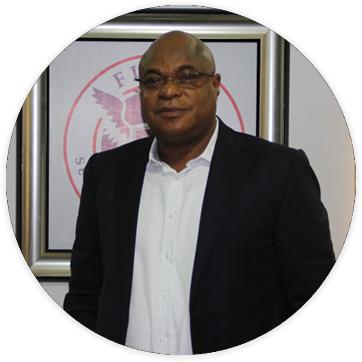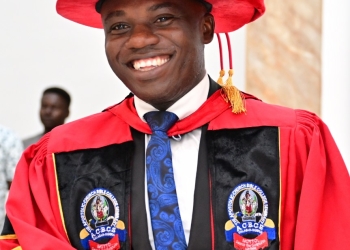AIG. Tunde Johnson Ogunsakin (Rtd)
OPINION
By Sam Akpe, Abuja
In this concluding part of the narrative on the inevitability of inter-agency collaboration on security, Tunde Johnson Ogunsakin recalls practical experiences during his days in the police force where intelligence-sharing and teamwork produced unimpeachable results.
Citing available evidence, the retired AIG reminded the gathering that poor inter-agency collaboration among Nigeria’s security institutions accounts for ineffective conflict resolution and security management in Nigeria.
As he put it, “the consequences of not working effectively together culminate in increasing fear of insecurity and diminished trust in the capabilities of the security system to protect the lives and property of civilian populations across Nigeria in general and terror zones in particular.
“From Boko Haram in the Northeast, banditry and criminal kidnapping in the Northwest, secessionist agitations in the Southeast and Southwest, the security system in Nigeria is practically overstretched.”
Under the circumstances, he said only the togetherness of the units that make up Nigeria’s security system would de-escalate conflict and neutralize security threats through complementary operations and credible intelligence-sharing, among others.
As a proponent of inter-agency unity, here are his personal experiences: “From 2012 to 2014, as Commissioner of Police, Special Fraud Unit in Lagos. I was able to establish collaborative efforts and synergy with numerous agencies and stakeholders.
“At the Special Fraud Unit, I set up a Stakeholders’ Forum comprising different individuals, corporate bodies, institutions and entities from all walks of life. This afforded us the opportunity to regularly brainstorm and leverage on superior knowledge and expertise in the performance of our duties.”
In 2012, he recalled that sequel to a Presidential directive, “I conducted investigation into the Fuel Subsidy Fraud and in the course of this investigation, I collaborated with the Economic and Financial Crimes Commission (EFCC), Central Bank of Nigeria (CBN), the Nigerian Navy, the Nigeria Custom Service and numerous financial and regulatory bodies.
“This collaboration, in no small measure, assisted me in ensuring that a thorough and in-depth investigation was conducted into the fuel subsidy fraud.
“I also collaborated with the Nigeria Deposit Insurance Corporation (NDIC) and all the financial institutions while investigating fraud cases at the Special Fraud Unit, Lagos.
“One of the gains of collective action that was noteworthy during my tenure as the Commissioner of Police, Special Fraud Unit was the building of an Interrogation Office fully equipped with state-of–the-art technological equipment for interrogating suspects.
“With the assistance of the Stakeholders Forum, we built a 3-storey standard forensic investigation laboratory office with modern investigative equipment to ease the performance of our duties.”
From Lagos, Tunde was transferred to Rivers State Police Command in 2014, as Commissioner of Police. Here, he launched serious onslaught against kidnapping and other violent crimes.
He recalls, “I collaborated with the military and other security agencies in crime-fighting. My posting then was at a time when there was upsurge in kidnapping and oil bunkering.
“However, through inter-agency unity, I was able to tackle the upsurge in crime at that time and there was relative peace in the state.
“Through collaborative efforts and synergy from the military and other security agencies, I also launched a programme: ‘Say No to Kidnapping.’
“This programme was largely very successful as it changed the mindsets of many of the youths to embrace other legitimate means of livelihood instead of embracing kidnapping and other forms of crimes.
“The programme exposed the ills of kidnapping and other criminal activities to the youths and other inhabitants of the state. Suffice it to say that through inter-agency unity, we were able to restore peace and sanity in the state as people were able to sleep with their two eyes closed.”
There was absolute quietness in the hall as Tunde narrated his encounters to the uniformed officers and plain clothes officers. He went ahead to recall his experiences following his appointment as Assistant Inspector-General of Police in 2015 when he took charge of Zone 6 Police Command, comprising four states.
Through inter-agency unity with the military and other security agencies, he was able to put in place new operational strategies towards elimination of kidnapping, pipeline vandalism, crude oil theft, illegal oil refining and bunkering, and other criminal activities.
The zeal to restore sanity in the area was so profound that Tunde requested from the then IGP, deployment of police helicopters to his office to join in the massive onslaught against the criminals.
“It is heartwarming to state that the gains of our collective action through inter-agency unity in this regard were monumental. There was no hiding place for the criminals as many of them were arrested and prosecuted.”
Apparently based on the enormous successes recorded at Zone 6 in Calabar, Tunde was posted to Zone 12 Police Command in Bauchi, comprising three states.
On assumption of office there, he stepped up his inter-agency unity drive which became quite critical in combating terrorism and other criminal tendencies that were rife in the area at the time.
He says the “scaled-up efforts were evident in the collaboration and partnership between the Nigeria Police, the military and other security agencies.
“This impacted positively on joint operations and other important assignments that were carried out while ensuring that normalcy was restored to the area.”
After citing and analyzing instances of inter-agency collaboration in other climes, the retired AIG declared: “We must, as a matter of urgency, organize a regular leadership conference to harness our shared vision of a secured Nigeria.”
As he explained, the leadership meetings would be expected to permeate to the states and LGAs with a view to engendering a harmonious and united workforce among all the security agencies.
Tunde hit the nail on the head when he noted that inferiority complex and superiority battles between and among security agencies have only aggravated the insecurity of everyone and deepened national insecurity.
His suggestions: “we must put in place a proper Command and Control mechanism for institutionalized control mechanism that would avoid rancor within the agencies. This Command-and-Control structure will supervise and ensure proper intelligence gathering, monitoring and sharing nationwide
“Using technology, we must as a matter of urgency set up a criminal data base project, and merge all identification databases….to the NSA’s office and utilize facial recognition and artificial intelligence in public areas, airports, prisons and key urban areas.”
Banditry in the Northwest has exposed how unmanned or poorly manned border zones can compromise national security, he disclosed, adding that the widespread smuggling and use of illicit drugs by criminals greatly contribute to the growing insecurity and its unfolding dynamism.
This, he said is a clear indication that the National Drug Law Enforcement Agency cannot do it alone without effectively collaborating with other security agencies.
He added, “to leave the border posts, airports and seaports alone to the Customs and Immigration without the support and collaboration of other security agencies will amount to opening our country to terrorists, drug lords, proliferation of arms which would ultimately fall into the hands of bandits, robbers, secessionists, oil thieves etc. and create problems for other agencies.
“If other security agencies do not work with NDLEA, for instance, those who get high on drugs will deploy it to do banditry and kidnapping which will then become a problem for the police, army and NSCDC.
“Security agencies in Nigeria must close ranks and eliminate rivalry. Security is arrived at when every part of the security system discharges its roles efficiently and balances its weaknesses with the strength of other agencies.
“A national policy framework on inter-agency unity and cooperation should be designed by the government for national security (national inter-agency cooperation model).
“A centralized intelligence gathering database should be provided for coordination and information dissemination among security agencies.” He also suggested the need for training and re-training of security personnel on security management.
While asking for public-private partnership and community engagement to combat general insecurity in the country, Tunde suggested a non-negotiable improvement in the general welfare of all the security forces.
He said: “good and excellent reward packages for the workforce in all the security agencies would serve as a motivating force to propel them for better performance. The quality of remuneration will mitigate frequent frictions among them, as each will focus on their duties and be ready to synergize and collaborate when the need arises.”
Focusing on specifics, he said for compliance with the Terrorism Prevention and Prohibition law of 2022, the office of the National Security Adviser should be a meeting point for proper coordination, collaboration and synergy for the greater purpose of ensuring the general security of the country.
The office of the NSA, he said, should develop a template for mandatory reporting that would bridge the gap of inadequate cooperation and dissemination of information among sister agencies.
His suggestion, “the NSA can institute a directorate of strategic planning, communication and civil engagement with representatives from all the security agencies which will constantly engage with the populace on policies and conflict with a view to finding solutions to national security problems.
“Tied to this is the need for regular joint training, workshops and intellectual exchange among the different agencies to foster inter-agency unity and enhance better coordination during joint operations.
“Agencies can enhance and sustain their collaborative efforts by establishing compatible policies, procedures, and other means to operate across agency boundaries, among other practices.”
“There is a challenge and a big task before us all. Inter-agency unity is not served on a platter of gold. It must be worked out knowing the gains that can accrue therefrom.
“Our agencies’ missions and visions are better realized when we work together in one accord. I challenge you all to come together, notwithstanding the agency you belong to, consciously embrace one another with our common goal, security and secured nation as the only target.
“Inter-agency unity exemplifies the power of collective action, showcasing how collaborative efforts can yield benefits. By harnessing the strength of diverse organizations, a unified approach fosters innovation, effective problem solving, and resistance in addressing complete issues for successful inter-agency collaboration, establishing clear communication channels, mutual respect and shared objectives as a sine qua non.
“The common goal is peace and a secure nation to foster economic growth. Let us work together. Achieving peace and security should be considered a teamwork because together everyone achieves more.”
That was Tunde, putting seasoned suggestions across bluntly. It is still not clear why someone with such specialized pedigree and verifiable track records has not been challenged to walk the talk.
Akpe is a Journalist based in Abuja






